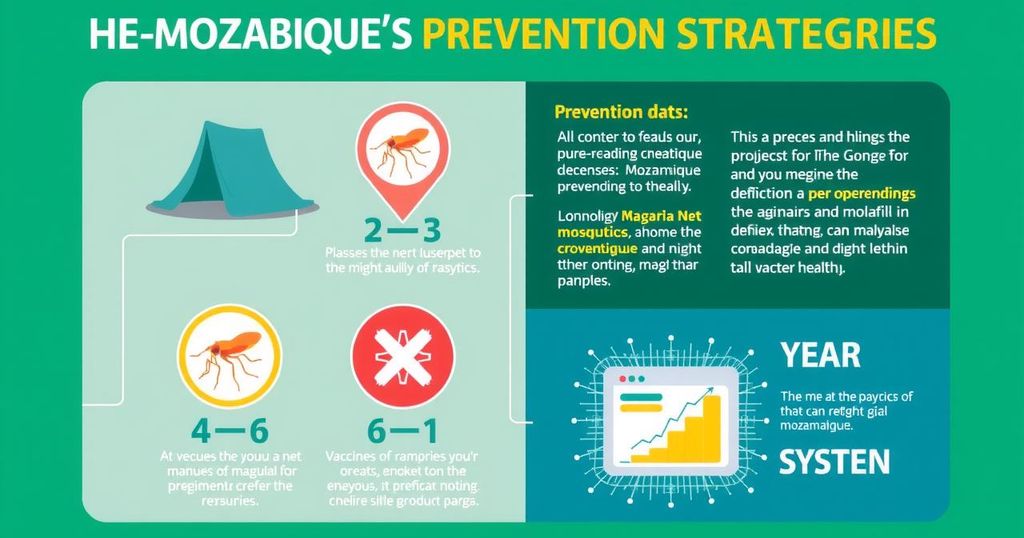Mozambique’s Malaria Cases Drop by 12 Percent in 2024
Mozambique has achieved a 12 percent reduction in malaria cases in 2024, as announced on World Malaria Day. President Daniel Chapo called for the adoption of evidence-based interventions, including vaccinations. Though improvements are noted, funding challenges persist. The R21 vaccine rollout for children and digital solutions for data management are key strategies in the fight against malaria.
Mozambique is making progress in the battle against malaria, recently cutting cases by 12 percent in 2024. This reduction, announced during World Malaria Day last Friday, was part of a broader appeal for increased global support, emphasized by President Daniel Chapo and echoed by the World Health Organization (WHO).
Chapo urged for greater use of evidence-based methods including vaccination, indoor residual spraying, and the distribution of mosquito nets. Additionally, he stressed the need for seasonal chemoprevention for children, which involves administering antimalarial medicine at the times when the risk of infection is highest.
Despite some improvements, President Chapo highlighted the ongoing challenges stemming from limited funding and resources, which could jeopardize the gains achieved through these interventions. Each year, malaria remains a leading cause of illness and deaths in Mozambique; the country reported over 11.5 million cases and approximately 358 deaths from malaria in the hospital last year. However, this number may underreport total fatalities as an estimated 22,000 malaria-related deaths occur annually outside hospital settings, according to a WHO report.
In 2024, Mozambique reported similar statistics with over 67,000 hospitalizations and a 1 percent decline in recorded deaths. The World Health Organization notes that Mozambique holds the unfortunate ranking of having the fifth-highest malaria burden globally, with the Anopheles mosquito breeding throughout the year due to favorable climatic conditions.
To aid in the fight, Mozambique has begun rolling out childhood malaria vaccines as one of only 14 African nations to do so. The region, characterized by a high malaria burden, accounts for a staggering 246 million cases and 569,000 deaths in 2023 alone.
The R21 vaccine, developed with Mozambican scientists’ assistance, was first introduced to children last August, targeting those aged 6 to 11 months. So far, about 300,000 children in the Zambézia province have received their first of the four doses. Approximately 32 percent of children in Mozambique contract malaria, and a single dose of the R21 vaccine can potentially reduce infections by up to 66 percent, while the full course offers extended immunity.
The government is also leveraging digital innovations to enhance its response to malaria. Traditionally, records for malaria control were manually kept, which significantly slowed data collection and analysis. The newly established Integrated Malaria Information System, inaugurated in 2022, aims to rectify this by combining four key data systems into an easy-to-use dashboard.
This digital transformation has dramatically cut the time needed for malaria campaigns, reducing them from weeks to just five days, allowing more efficient resource allocation. With adequate funding, these initiatives, including the adoption of new technologies and vaccines, could lead to a substantial decline in malaria cases in Mozambique.
In summary, Mozambique is showing promise in its fight against malaria, with a reported 12 percent reduction in cases for 2024. The government is implementing various strategies, including child vaccination and digital solutions to enhance data management. However, the ongoing challenges of funding and healthcare resources remain critical issues that need addressing. Without an increased global response and collaboration, progress could be fragile.
Original Source: macaonews.org




Post Comment